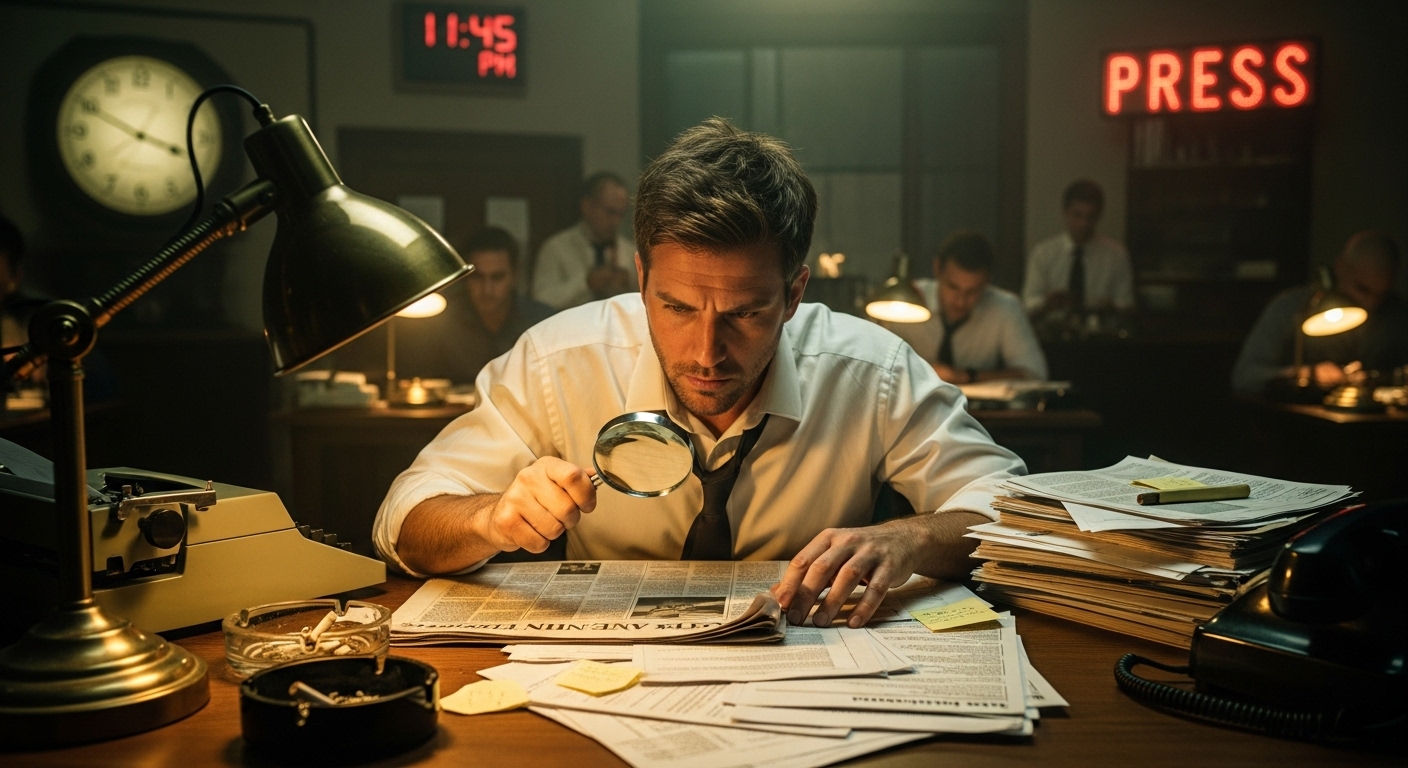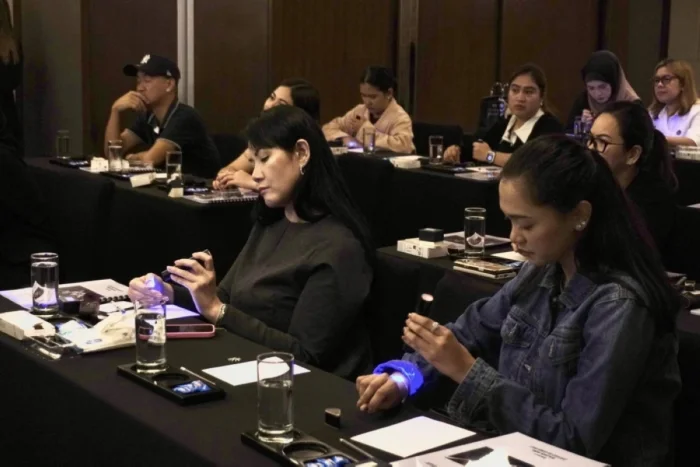
Fact-Checking in News: Why It’s More Important Than Ever
In an age where information spreads at lightning speed, the importance of fact-checking in news has never been more critical. As the digital landscape continues to evolve, so do the challenges associated with maintaining the integrity and accuracy of news reporting. This article delves into the significance of fact-checking, the impact of misinformation, and the role of technology in ensuring the truth prevails in journalism.
The Rise of Misinformation
The proliferation of digital platforms has led to an unprecedented surge in the availability of information. While this democratization of news has many benefits, it also poses significant risks. Misinformation, which encompasses false or misleading information shared regardless of intent, has become a pervasive issue. From social media posts to clickbait headlines, misinformation can spread rapidly, often outpacing efforts to correct it.
One of the most notorious examples of misinformation is the spread of fake news during significant political events. Fake news stories can influence public opinion, disrupt elections, and create confusion among the populace. The consequences of misinformation are far-reaching, affecting not only individuals but also society as a whole.
The Role of Fact-Checking in Journalism
Fact-checking is the process of verifying the accuracy of information before it is published. In journalism, this practice is essential for maintaining credibility and trust with the audience. Fact-checkers investigate claims, evaluate sources, and cross-reference data to ensure that the information presented is factual and unbiased.
Organizations such as The International Fact-Checking Network have been established to promote best practices and ethical standards in fact-checking. These organizations set guidelines for transparency, fairness, and accountability, helping to uphold the integrity of the news industry.
Challenges in the Fact-Checking Process
Despite its importance, fact-checking is not without its challenges. The sheer volume of information available online makes it difficult for fact-checkers to keep up. Additionally, the rapid spread of misinformation means that fact-checking often becomes a reactive rather than proactive measure.
Another challenge is the bias that can sometimes influence fact-checking. While fact-checkers strive for objectivity, personal or organizational biases can inadvertently affect the outcome. It is crucial for fact-checkers to remain vigilant against such biases and adhere to strict ethical guidelines.
The Impact of Technology on Fact-Checking
Technology has played a dual role in the dissemination of misinformation and the facilitation of fact-checking. On one hand, digital platforms have amplified the reach of false information. On the other hand, technological advancements have provided new tools and techniques for fact-checkers to use in their work.
Artificial intelligence and machine learning algorithms, for example, have been developed to detect patterns of misinformation and flag suspicious content. These technologies can analyze vast amounts of data quickly, identifying potential falsehoods before they gain traction. Additionally, social media platforms are implementing measures to curb the spread of fake news, such as tagging or removing false content.
For instance, algorithms are being used to identify and combat misinformation related to the COVID-19 pandemic, helping to ensure that accurate health information reaches the public.
Building Public Trust Through Transparency
Public trust in the media is crucial for a functioning democracy. To rebuild and maintain this trust, transparency in the fact-checking process is essential. News organizations must be open about their fact-checking methods, sources, and any potential conflicts of interest.
Transparency extends to admitting mistakes when they occur. Corrections and retractions should be made promptly and prominently, demonstrating a commitment to accuracy and accountability. By being transparent, news organizations can foster trust and reinforce the importance of fact-checking in journalism.
Educational Initiatives and Media Literacy
In addition to improving fact-checking practices, there is a growing need for educational initiatives that promote media literacy. Educating the public about how to critically evaluate information and recognize misinformation is crucial in reducing its impact.
Programs that teach individuals how to discern credible sources, understand bias, and verify facts can empower them to make informed decisions. Organizations like CommonLit provide resources and tools for educators to incorporate media literacy into their curricula, helping to create a more informed and discerning public.
The Future of Fact-Checking
As the media landscape continues to evolve, so too will the methods and tools used in fact-checking. Collaborative efforts between fact-checkers, journalists, technology companies, and the public will be essential in combating misinformation and ensuring the integrity of news.
Emerging technologies, such as blockchain, offer potential solutions for verifying the authenticity of information. By providing a decentralized and tamper-proof record of data, blockchain technology could revolutionize the way information is verified and shared.
Furthermore, continued investment in fact-checking initiatives and media literacy programs will be crucial in building a more resilient news ecosystem. As society becomes increasingly reliant on digital information, the importance of fact-checking will only continue to grow.
Takeaways
Fact-checking in news is a vital component of modern journalism, serving as a bulwark against the spread of misinformation. In an era where false information can have significant consequences, the role of fact-checkers has never been more important. By embracing new technologies, promoting transparency, and investing in media literacy, society can better navigate the challenges of the information age and ensure that the truth prevails.
Case Studies Highlighting the Importance of Fact-Checking
To illustrate the critical role of fact-checking, consider several notable case studies where fact-checking played a pivotal part in the news landscape. One such example is the 2016 U.S. Presidential Election, where fact-checking organizations worked tirelessly to debunk numerous false claims made during the campaign. These efforts helped to provide voters with accurate information, despite the overwhelming volume of misleading content.
Another significant case involves the misinformation surrounding the COVID-19 pandemic. As false claims about the virus and its treatments circulated widely, fact-checking organizations such as Snopes and FactCheck.org played a crucial role in dispelling myths and correcting falsehoods. Their work ensured that the public received reliable health information, which was vital in managing the global health crisis.
Fact-Checking and Social Media Platforms
Social media platforms are both a source and a battleground in the fight against misinformation. These platforms have taken steps to address false information, such as partnering with third-party fact-checkers to review and tag misleading content. While these efforts are valuable, they also face challenges, including accusations of censorship and bias.
For instance, Facebook’s partnership with fact-checking organizations involves labeling false information and providing users with links to verified facts. This approach aims to reduce the spread of misinformation by informing users and encouraging them to consider credible sources. Similarly, Twitter has implemented policies to identify and flag misleading tweets, particularly those related to public health and safety.
Despite these efforts, social media companies continue to grapple with the sheer volume of content and the speed at which misinformation spreads. Ongoing collaboration with fact-checkers and the development of more sophisticated detection tools are necessary to enhance the effectiveness of these measures.
Fact-Checking in the Context of Global Events
Global events, such as natural disasters, wars, and pandemics, often become hotbeds for misinformation. In these situations, the role of fact-checkers becomes even more crucial, as the public relies on accurate information to make informed decisions and stay safe.
During the 2011 Fukushima nuclear disaster, for example, misinformation about radiation levels and safety measures spread rapidly, causing panic. Fact-checkers worked diligently to provide accurate updates and debunk false claims, helping to alleviate public fear and provide clarity amidst the chaos.
Similarly, in conflict zones, misinformation can be used as a tool of war, with false reports affecting public perception and even military strategies. Fact-checkers play a vital role in such contexts, striving to separate fact from fiction and provide unbiased information to a global audience.
The Ethical Dimensions of Fact-Checking
Fact-checking is not only a technical process but also an ethical responsibility. Fact-checkers must navigate complex moral landscapes, often making decisions about what information to prioritize and how to communicate sensitive issues to the public.
Ethical considerations include the potential harm of spreading misinformation, the importance of providing context, and the need to respect privacy and human dignity. Fact-checkers must also consider the implications of their work on free speech and the potential for unintended censorship.
Adhering to ethical guidelines and maintaining transparency about the fact-checking process are essential for ensuring that fact-checking remains a trusted and effective tool in the fight against misinformation.
The Future of Fact-Checking: Collaborative Efforts and Innovations
Looking ahead, the future of fact-checking will likely involve increased collaboration between fact-checkers, journalists, technology developers, and educators. By working together, these stakeholders can develop more effective strategies to combat misinformation and promote a well-informed public.
Innovations in technology, such as automated fact-checking tools and blockchain verification systems, hold promise for enhancing the efficiency and accuracy of fact-checking efforts. These tools can provide real-time verification, enabling quicker responses to emerging misinformation.
Furthermore, fostering a culture of critical thinking and skepticism through education will empower individuals to independently verify information and resist misinformation. As society becomes more digitally interconnected, the need for robust fact-checking mechanisms will only intensify.
Conclusion: A Collective Responsibility
Fact-checking in news is an essential pillar of modern journalism, safeguarding the truth in an era characterized by information overload. The challenges posed by misinformation require a collective response, involving journalists, fact-checkers, technology experts, educators, and the public.
By embracing transparency, leveraging technology, and promoting media literacy, society can build resilience against misinformation and ensure that accurate information prevails. As we navigate the complexities of the digital age, fact-checking remains a vital tool in our pursuit of truth and understanding.






